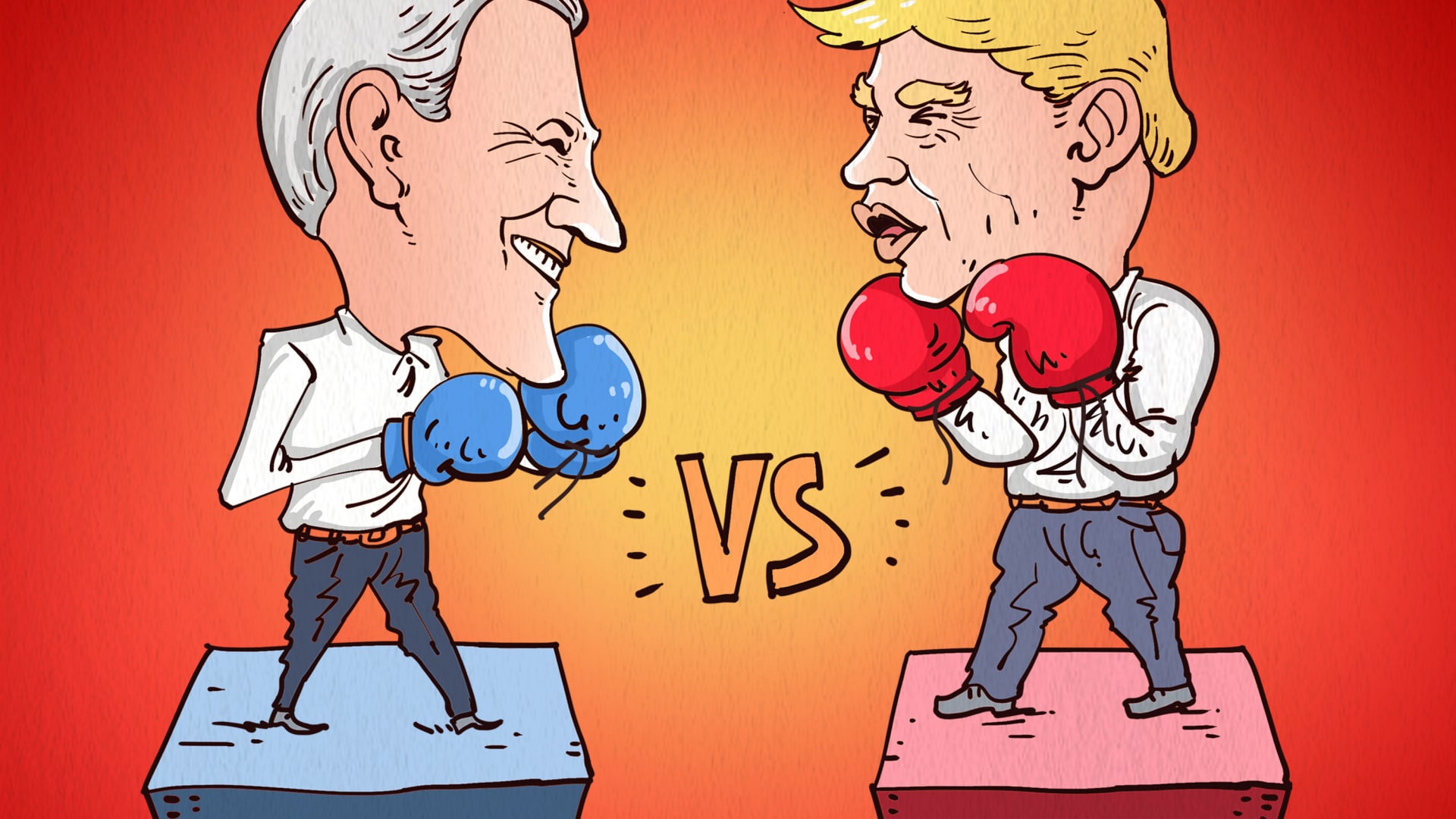Biden may be losing his favorability advantage over Trump, new polls suggest

A flurry of new 2024 presidential election polls have a common thread: Republican frontrunner Donald Trump is leading incumbent President Joe Biden in a hypothetical November matchup.
In four separate surveys released over the weekend by The New York Times/Siena College, Fox News, The Wall Street Journal and CBS News/YouGov, Trump’s lead ranged from two points to five points among registered voters.
The Fox News and Wall Street Journal surveys both showed Trump with a two point lead over Biden, 49-47 and 47-45, respectively. This was within their 2.5% margins of error.
In the CBS News/YouGov poll, Trump led by four points, 52-48, outside the poll’s 2.8% margin of error.
The Times/Siena survey showed a slightly larger lead for Trump of five points, 48-43, also outside the poll’s 3.5% error margin.
Taken together, they paint a picture of a race that is extremely tight, but one where Trump’s advantage is solidifying.
In addition to the hypothetical matchup lead, the surveys also hinted at a deeper shift in voter perceptions of two men who have been campaigning against one another on and off for the past five years: They suggest Biden may be losing is long-held likability edge over Trump.
Across all four polls, Trump had a higher favorability rating than Biden did with respondents, although some were within the surveys’ margins of error.
This was unheard of during the 2020 election cycle, a race in which Biden ran as a candidate who promised to unite a country bitterly divided after four years under Trump.
In October of 2020, a Times/Siena polls found that 52% of respondents had a favorable view of Biden, while only 43% viewed then-President Trump favorably.
Last month, however, the tables had turned. Only 38% of Times/Siena respondents had a favorable view of Biden, while 44% saw Trump favorably. Similar splits were reflected in the Fox News and Wall Street Journal surveys.
Polls represent a snapshot in time, and are not necessarily predictive of future outcomes. The Biden and Trump campaigns did not immediately reply to requests for comment from CNBC on the apparent likability shift.
The economy
Biden’s popularity still lagged even as voters expressed more optimism about the economy, an issue that has weighed heavily on the president’s reelection campaign so far.
In the Wall Street Journal survey, Biden received the best marks in his campaign so far on his handling of the economy, with 40% of voters approving of his management of the economy. This was up four points from the same question in December.
Still, the CBS News/YouGov poll suggested voters remember the Trump economy through rose-colored glasses.
In response to a good/bad question about how the U.S. economy was under Trump, 65% of those surveyed said it was “good.” Asked how the economy is doing today, only 38% said it was good.
On a question that measured perceptions of inflation, voters were asked whether they believed prices would go up or down under the differing policies of Trump and Biden. Fifty-five percent said Biden’s policies would drive prices higher, while only 34% said Trump’s would do the same.
Trump has said he is considering the possibility of imposing a 60% or higher tariff on Chinese goods and a universal 10% tariff on all U.S. imports if he is elected president. Economists and analysts say major tariff increases would be likely to raise the price of many consumer goods.
Biden has been fighting tooth and nail to convince voters that the economy’s post-Covid recovery is the result of his economic agenda, which aides have dubbed Bidenomics. But voters, still feeling the inflationary squeeze on their budgets, have yet to give Biden credit for the objectively strong economy, even as they get more optimistic about its trajectory.
The Fox News poll surveyed 1,262 registered voters between Feb. 25 to 28, with a margin of error of +/-2.5%. The Wall Street Journal poll sampled 1,745 registered voters between Feb. 21 to 28, with a margin of error of +/-2.5%.
The CBS News/YouGov poll surveyed 2,159 Americans between Feb. 28 to March 1, with a margin of error of +/-2.8%. The New York Times/Siena College poll surveyed 980 registered voters from Feb. 25 to 28, with a margin of error of +/-3.5%.
Read the original article here






